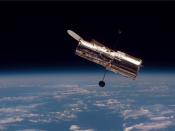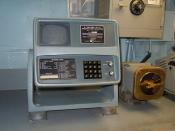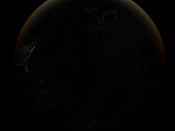Space exploration has been increasing greatly in the last 50 years. It has allowed us to understand the greatness of the universe and the endless possibilities it offers us. Our planet, Earth, is inhabited by approximately 6 billion humans. This is well over our natural carrying capacity (the amount of resources there are to sustain our population) but with techniques such as farming, we have manipulated our resources to provide us with enough food, but alternate solutions are needed. The Cold War was when the space exploration significantly advanced, with the political competition between U.S.A and the U.S.S.R., where the two nations invested highly on technologies to see who could win the space-race. Artificial satellites, a man made device that orbits around Earth or other planets, came along at about 1951, when the Russians launched "Sputnik 1" into orbit around Earth. Since then, satellites have developed technologically and now they are so widely used, that almost everyone's benefiting from them in everyday life.
Through space exploration, a lot has been learnt about Earth and space. When the Hubble Space Telescope was fully operational in 1993, it allowed us to observe our galaxy in ways that were impossible from Earth. Orbiting observatories such as the Advanced X-Ray Astrophysics Facility (AXAF) and the Cosmic Background Explorer (COBE) also contributed to the study of the stars, galaxies and the structure of the universe. These have all brought back images of previously unknown galaxies and stars, and also have increased our awareness of black holes. Several probes have been sent out from Earth, and collected information about the atmospheres of the planets in our solar system. Scientist and environmentalists have learnt a great deal about our planet. With the help of satellites, they can now easily find facts about deforestation, pollution, global warming and...



Nice
this was a really good essay overall. i enjoyed reading it and the information was well structured and very aquarate. thanks very much for posting this
1 out of 1 people found this comment useful.